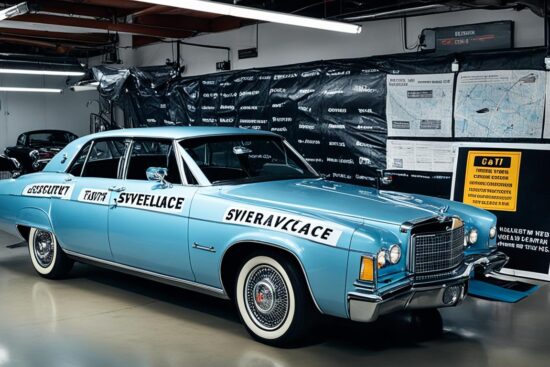
Introduction
In the realm of automotive ownership, few things are as essential as car insurance. It’s not just a legal requirement in many places; it’s a shield against financial ruin and a lifeline in times of crisis. This comprehensive guide will delve into the intricacies of car insurance, from its various types to the factors influencing premiums and everything in between.
What is Car Insurance?
Car insurance is a contractual agreement between an individual and an insurance company, wherein the insurer provides financial protection against physical damage or bodily injury resulting from traffic collisions and against liability that could also arise from incidents in a vehicle.
Importance of Car Insurance
Car insurance is crucial for several reasons:
- Legal Requirement: In most jurisdictions, having car insurance is mandatory.
- Financial Protection: It safeguards against financial loss due to accidents, theft, or damage to the vehicle.
- Peace of Mind: Knowing that you’re covered in case of an unforeseen event provides a sense of security.
Types and Categories
Car insurance can be broadly categorized into several types, each serving different purposes and providing varying levels of coverage.
Liability Insurance
This type of insurance covers injuries or property damage that the policyholder is legally responsible for, up to the policy limit.
Collision Insurance
Collision insurance covers damage to the policyholder’s vehicle caused by a collision with another vehicle or object.
Comprehensive Insurance
Comprehensive insurance provides coverage for damage to the policyholder’s vehicle not caused by a collision, such as theft, vandalism, or natural disasters.
Uninsured/Underinsured Motorist Coverage
This coverage protects the policyholder in the event of an accident with a driver who has little or no insurance.
Symptoms and Signs
While car insurance itself doesn’t exhibit symptoms or signs, certain indicators suggest the need for reevaluation or adjustment of your policy.
Rising Premiums
If your insurance premiums increase significantly without any notable changes in your driving record or vehicle, it might be time to shop around for better rates.
Denied Claims
Repeatedly having claims denied or encountering difficulties with the claims process could signal issues with your current insurer.
Policy Exclusions
Reviewing your policy’s exclusions and realizing that essential coverage is missing can be a red flag indicating the need for a more comprehensive plan.
Causes and Risk Factors
Several factors influence car insurance premiums and the risk associated with insuring a particular vehicle or driver.
Driving Record
A clean driving record with no accidents or traffic violations typically results in lower insurance premiums, as it indicates a lower risk of future claims.
Vehicle Type
The make, model, and year of your vehicle can affect insurance rates, with newer or more expensive cars generally costing more to insure.
Location
The area where you live and park your vehicle can impact insurance rates, with higher rates in urban areas or regions with high rates of accidents or theft.
Diagnosis and Tests
Assessing your car insurance needs and determining the most suitable coverage involves several considerations and evaluations.
Coverage Needs Analysis
Evaluate your driving habits, the value of your vehicle, and your financial situation to determine the appropriate level of coverage.
Comparing Quotes
Obtain quotes from multiple insurance companies to compare coverage options and premiums, ensuring you get the best value for your money.
Reviewing Policy Details
Carefully review the terms, conditions, and coverage limits of each policy to ensure it meets your needs and provides adequate protection.

Treatment Options
Selecting the right car insurance policy involves understanding the various coverage options and tailoring them to suit your individual needs.
Liability Coverage
Liability coverage is the foundation of any car insurance policy, providing financial protection against bodily injury and property damage liability.
Collision Coverage
Collision coverage is essential for covering damage to your vehicle in the event of a collision with another vehicle or object.
Comprehensive Coverage
Comprehensive coverage protects against non-collision related damage, such as theft, vandalism, or natural disasters.
Preventive Measures
While car insurance primarily serves as a safety net for unexpected events, there are several proactive steps you can take to minimize risk and lower your premiums.
Defensive Driving
Practicing defensive driving techniques can reduce the likelihood of accidents and traffic violations, resulting in lower insurance premiums.
Vehicle Security Measures
Installing anti-theft devices and parking your vehicle in a secure location can deter theft and vandalism, potentially lowering insurance rates.
Regular Maintenance
Keeping your vehicle well-maintained and in good condition can reduce the risk of mechanical failures or accidents, leading to lower insurance premiums.
Personal Stories or Case Studies
Real-life experiences can provide valuable insights into the importance of car insurance and the impact it can have on individuals’ lives.
Jane’s Story: Peace of Mind During a Crisis
Jane was involved in a serious car accident that left her vehicle totaled and her with substantial medical bills. Thanks to her comprehensive car insurance policy, she was able to cover the expenses and focus on her recovery without worrying about financial ruin.
Mike’s Experience: A Lesson in Coverage
Mike thought he had adequate insurance coverage until his vehicle was stolen and found vandalized weeks later. Without comprehensive coverage, he was left with significant out-of-pocket expenses, highlighting the importance of understanding your policy’s coverage options.
Expert Insights
Insurance professionals offer valuable advice and insights into navigating the complex world of car insurance.
Sarah Johnson, Insurance Agent
“Understanding your coverage options and regularly reviewing your policy can help ensure you have adequate protection when you need it most. Don’t wait until it’s too late to discover gaps in your coverage.”
Dr. Michael Smith, Risk Management Expert
“Car insurance is more than just a legal requirement; it’s a vital financial safety net. Investing in comprehensive coverage can provide peace of mind and protect you from unforeseen expenses.”
Conclusion
Car insurance is a critical component of responsible vehicle ownership, providing financial protection and peace of mind in the face of unexpected events. By understanding the various types of coverage, assessing your individual needs, and taking proactive measures to minimize risk, you can ensure you have the protection you need when you need it most.












